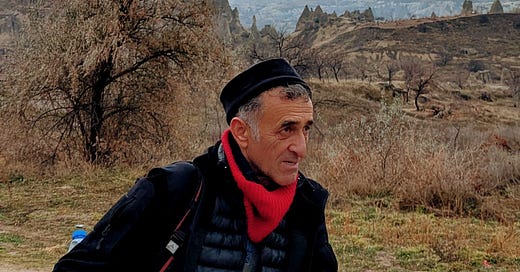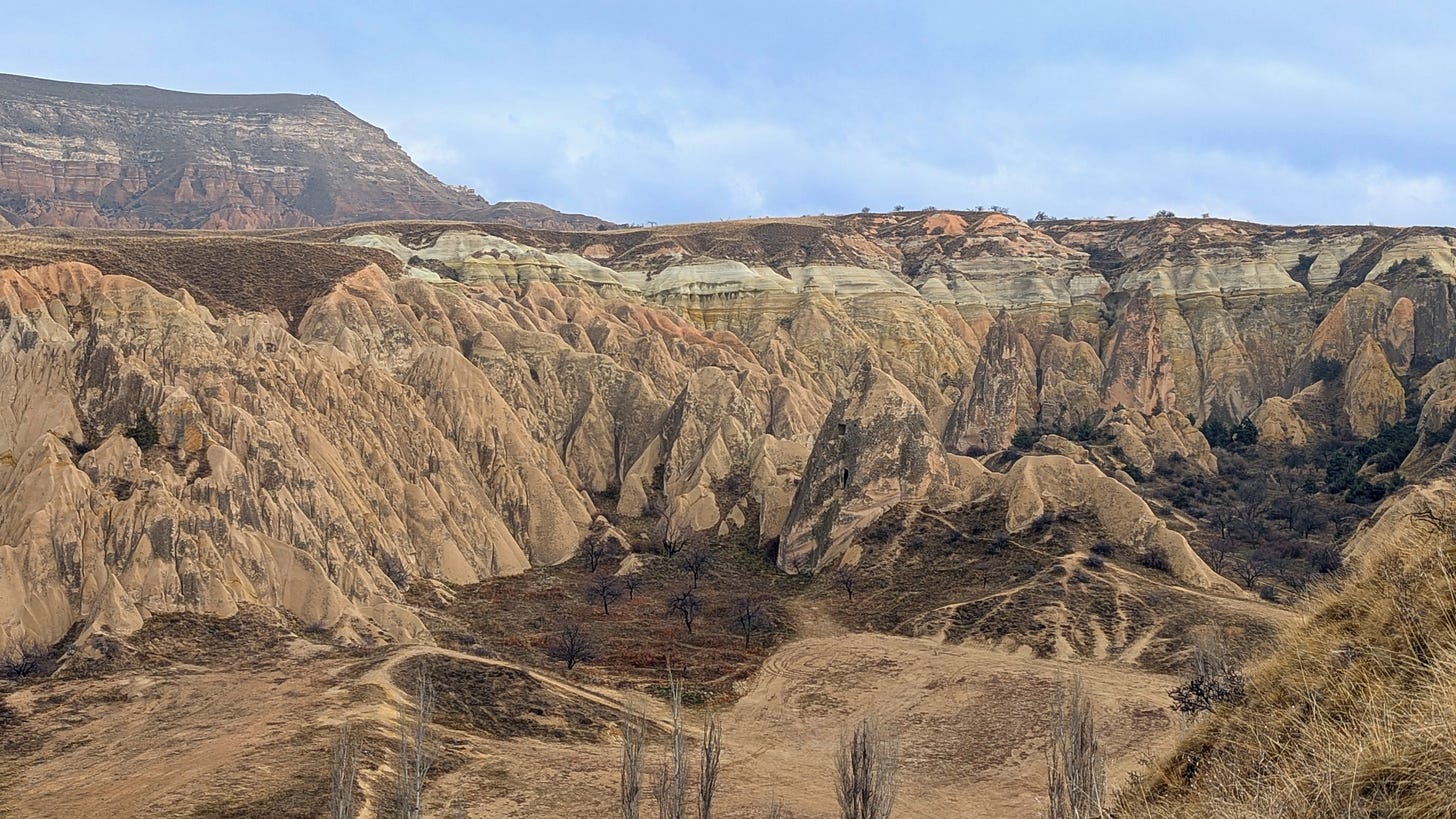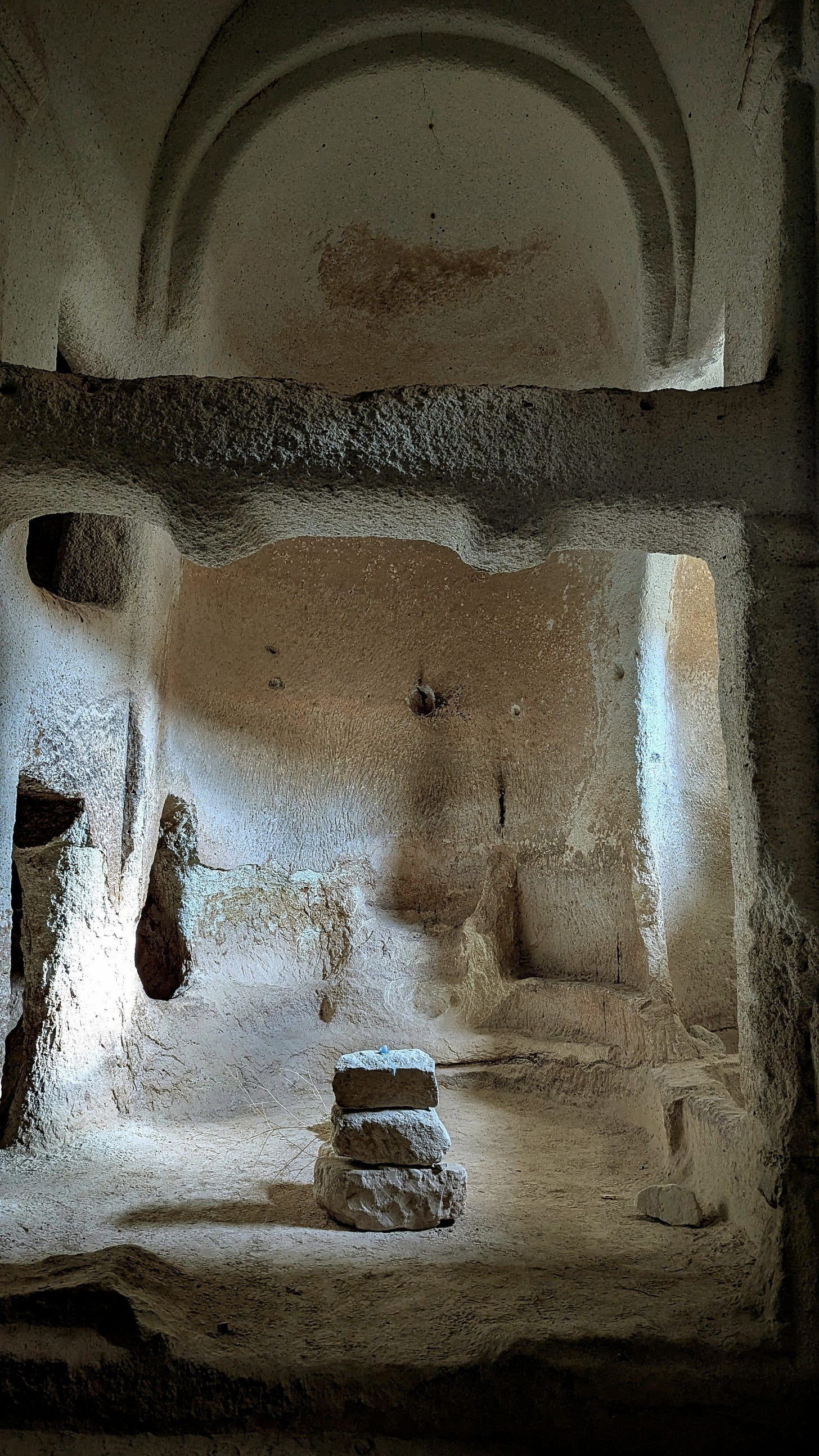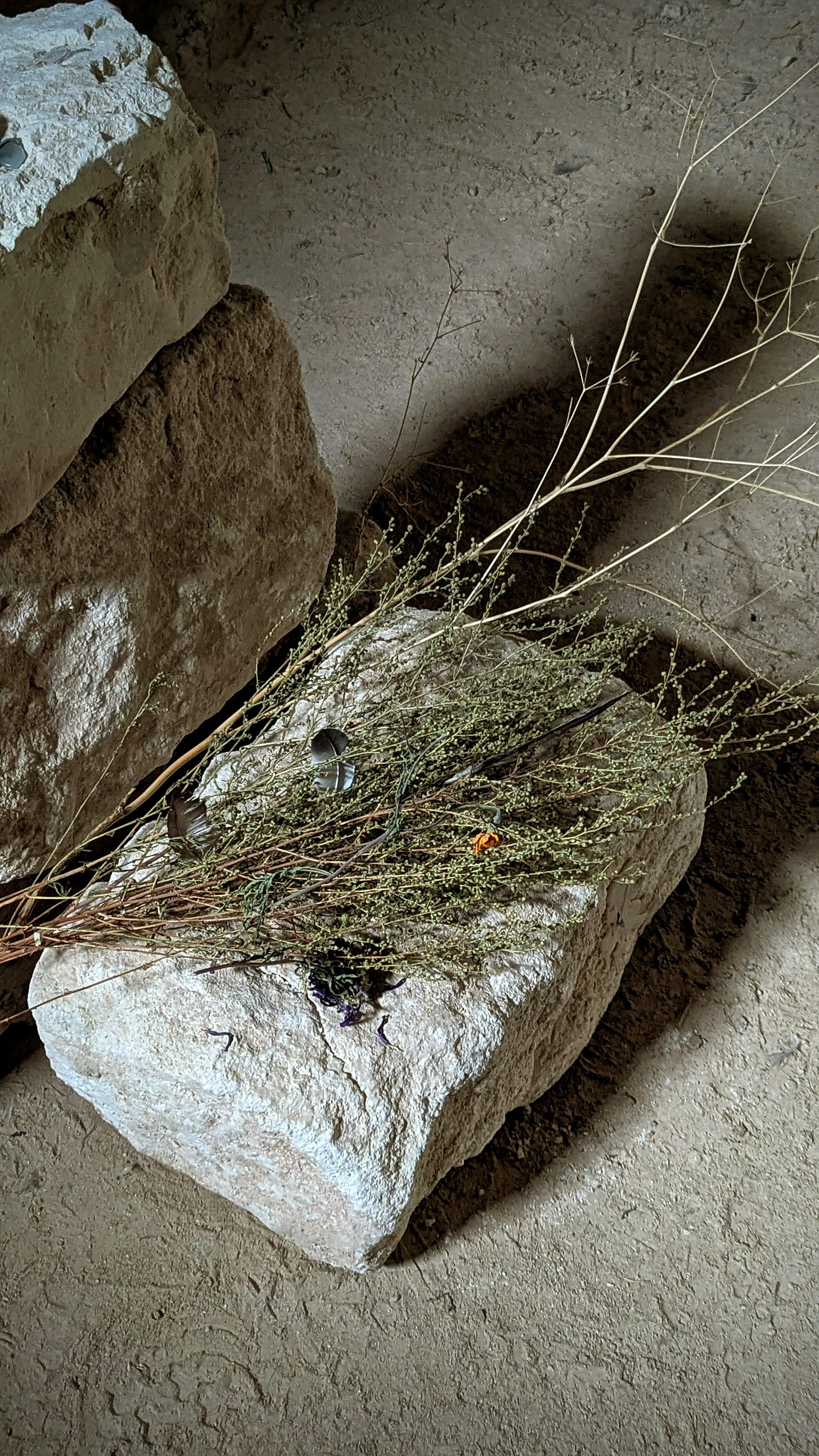The cliffside prophet of Capadoccia
These travel-induced epiphanies reeked of privilege, but experiences like this couldn’t help but make me accept that you need to explore outside your comfort zone to adjust your worldview
On the second to the last day of the year, we took a walking tour with a local guide named Mehmet. We were supposed to ride a hot-air balloon in the morning but they (meaning the Turkish Civil Aviation Authority, which controls these flights) canceled it because of bad weather. To make the most of our misfortune, our friend Mary Margaret organized a leisurely hike instead, a good trade-off to still see Capadoccia without being high up in the air.
Mehmet, who had been touring guests for twenty years now, had the vibe of a rural philosopher. He hated city life, scorning the fast-paced existence of snooty urbanites who looked down on people who didn't share the same passion for accumulating money. He told us about his recent trip to Amsterdam and how he wondered why people were in such a rush. "I'd rather have 100,000 euros and a good quality of life than 1,000,000 euros but constantly chasing money," he proudly told us. He also hated the Dutch who used electric bikes, as opposed to just plain normal sweat-driven ones. We ambled behind him, unwilling disciples led by a rugged everyday prophet.
The weather was cold but not uncomfortable, which made it perfect for peregrinating through the Capadoccian landscape. I wish I had brought better shoes for the trek after slipping five minutes after we started. I managed to stop my fall by using my right arm, which was certainly not the way to do it since a lot of people break their arms doing this. I remembered a video I saw the other night about old people having a thirty-percent chance of dying after a fall, and why it's important to exercise to minimize your mortality risk. I am fairly active and not yet within the age range the video mentioned, but the thought of slipping off the cliff and bashing my head did cross my mind. My brain is obsessed with playing out worst-case scenarios. (Funnily, I am also attracted to taking risks, so I think my System 1 self defaults into terror and takes pleasure in it.)
According to Mehmet, 80% of Turkey is still undeveloped, but he launches into a rant that this isn't necessarily a bad thing. "Who for? What for?" he says. "When it rains, what do people in the city say? It's bad. But people in the countryside, they like the rain. It's good for their farms." I wanted to say that in the Philippines, where we're pummeled by twenty storms every year, the rain is horrible for both city and country folk, but I decided to shut up.
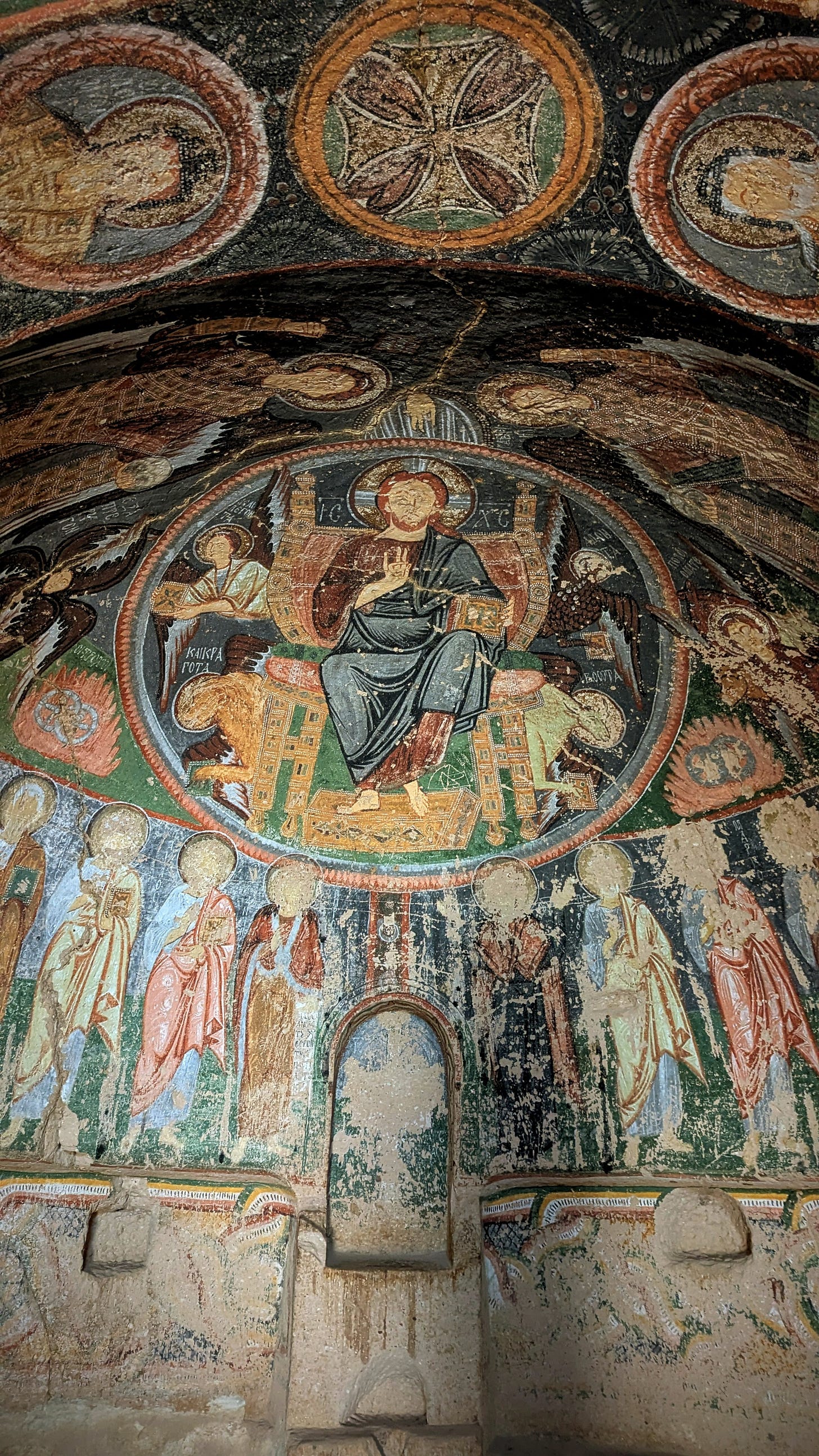
As we hiked deeper into Rose Valley, surrounded by spectacular views of the fairy chimneys — phallic rock structures formed millions of years ago by volcanic eruptions and eroded by rains and winds — Mehmet shared that he and his wife had come to an agreement that they were not good couples. Good parents, yes, but they simply couldn’t be together as lovers. After the tour, we wondered whether it was just his excuse to practice nonmonogamy. His partner (who we suspected was a Dutch woman, obviously unconfirmed but made for a good story) seemed to exist only to realize Mehmet’s self-actualization – like a non-player character in the RPG that is his life.
That said, Mehmet’s quirkiness made the 12-kilometer trek bearable. As we trudged on, it became apparent how he knew the landscape like the back of his hand. He showed us cave churches that we couldn’t have discovered by ourselves. There was one church he took us to (his favorite one, he claimed) where I felt that I was entering into something sacred, a word I do not use lightly here, the atheist that I am. I imagined how people in the past huddled in this secret space, the light streaming into the dark chamber where their prayers echoed inside these walls. The mise-en-scène dramatically forces you to acknowledge how little you are in the grand scheme of existence, an insignificant mortal passing through space and time.
It felt like an appropriate end to the year and the start of a new one. I’ve once told myself how these travel-induced epiphanies (and the accompanying essays to detail them) reeked of privilege, but experiences like this couldn’t help but make me accept that you need to go out there and explore outside your comfort zone to adjust your worldview.
For Mehmet, that meant eschewing the life he’d seen from the outside world and returning to his village where he could live the life he wanted, and casually say to people like us that he once had the secretary-general of the United Nations as part of his walking tours.


